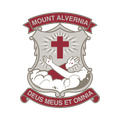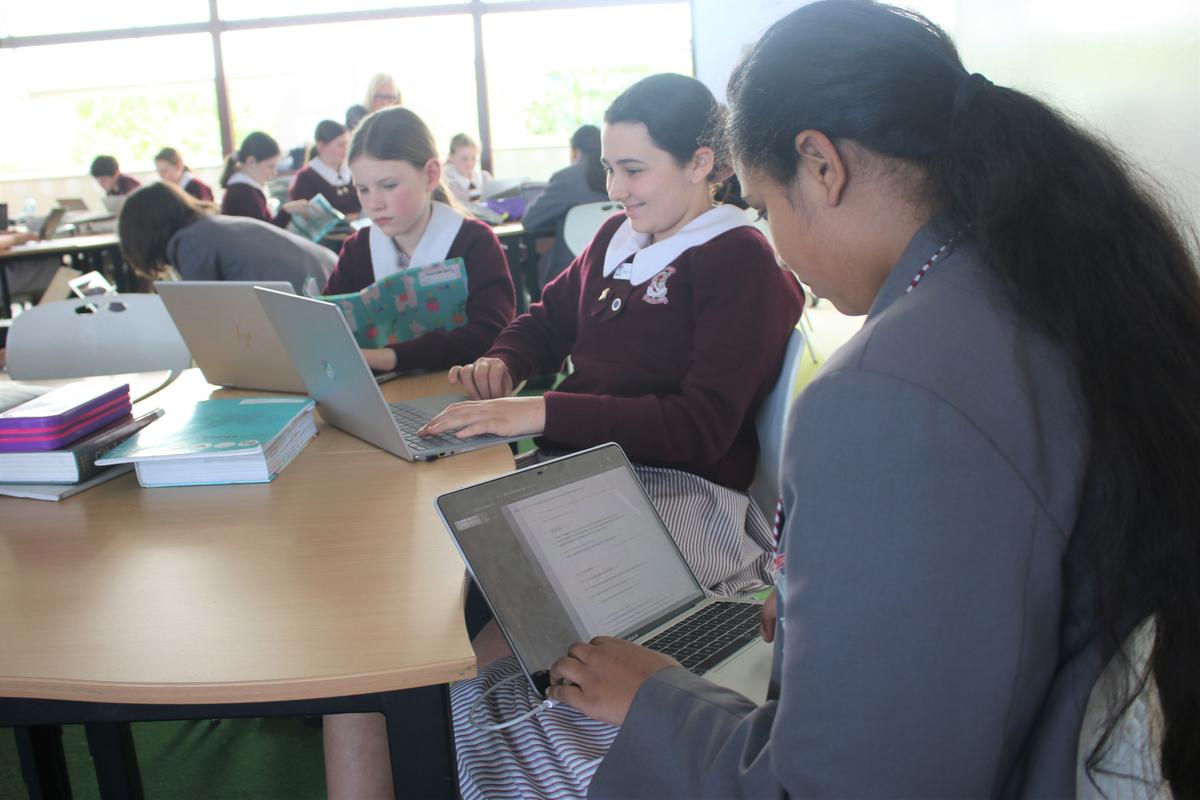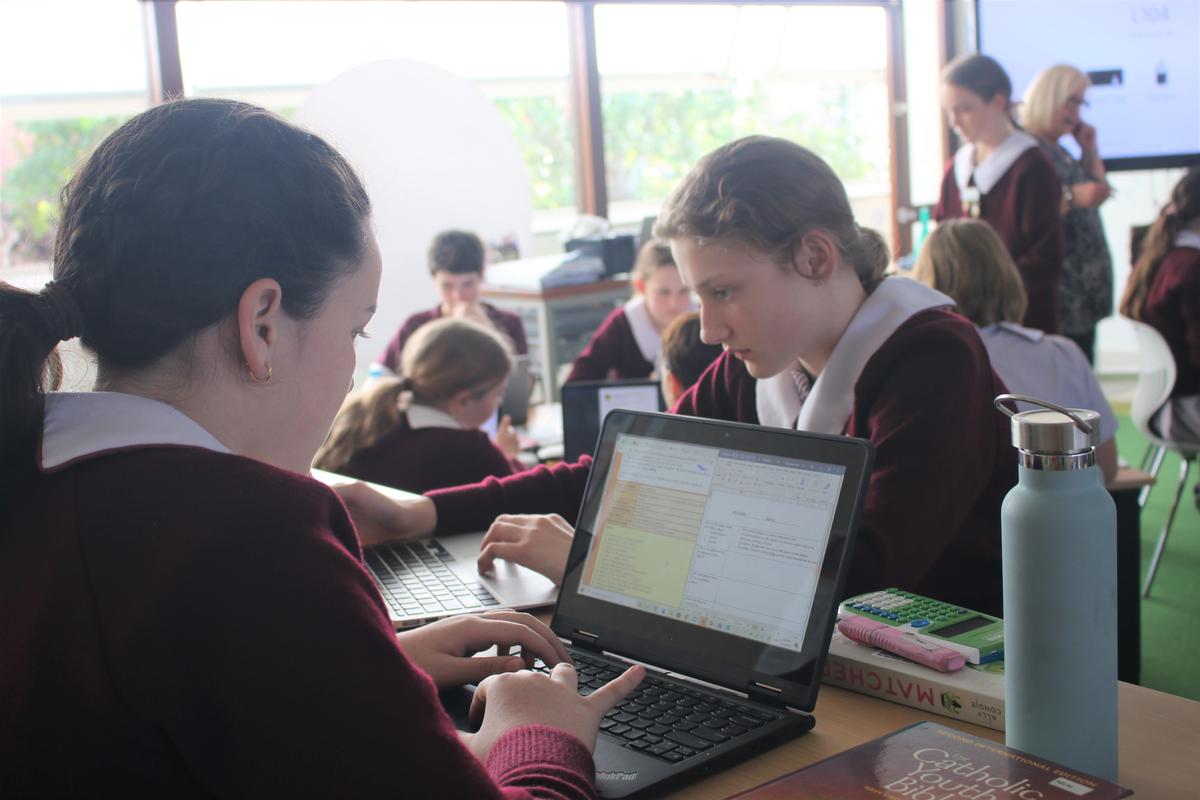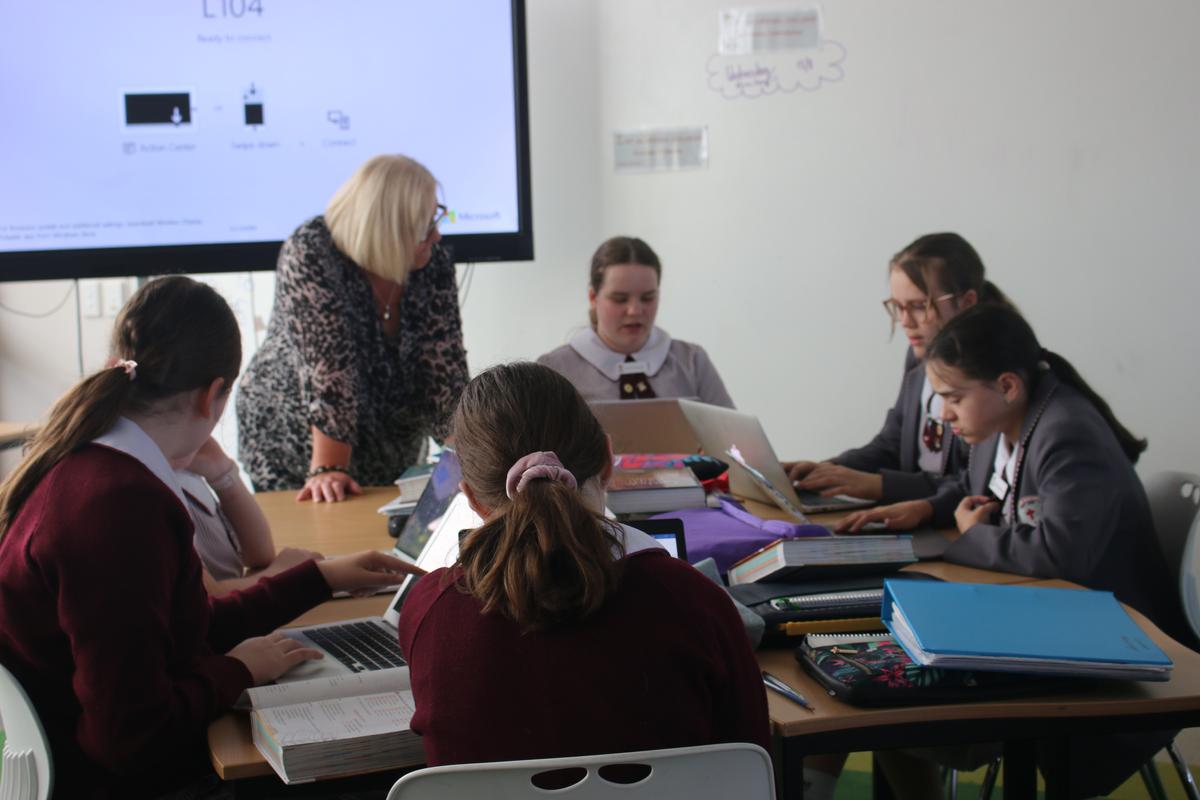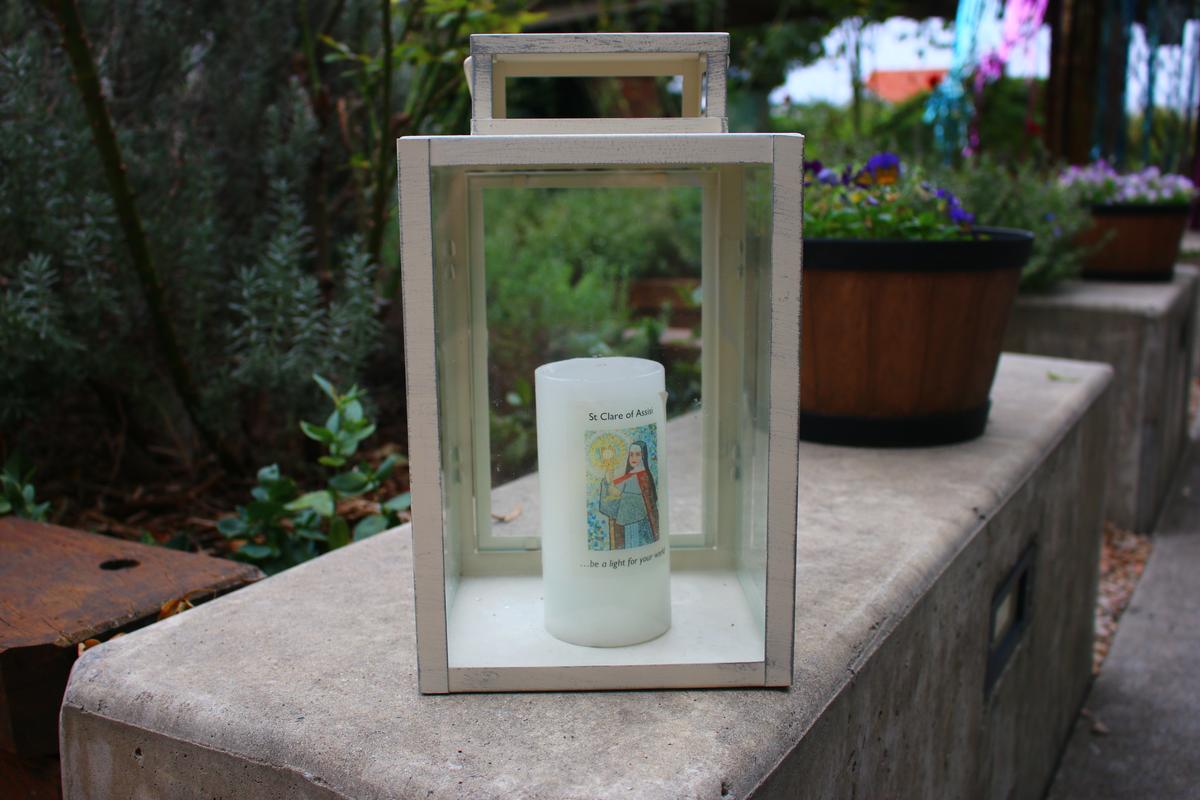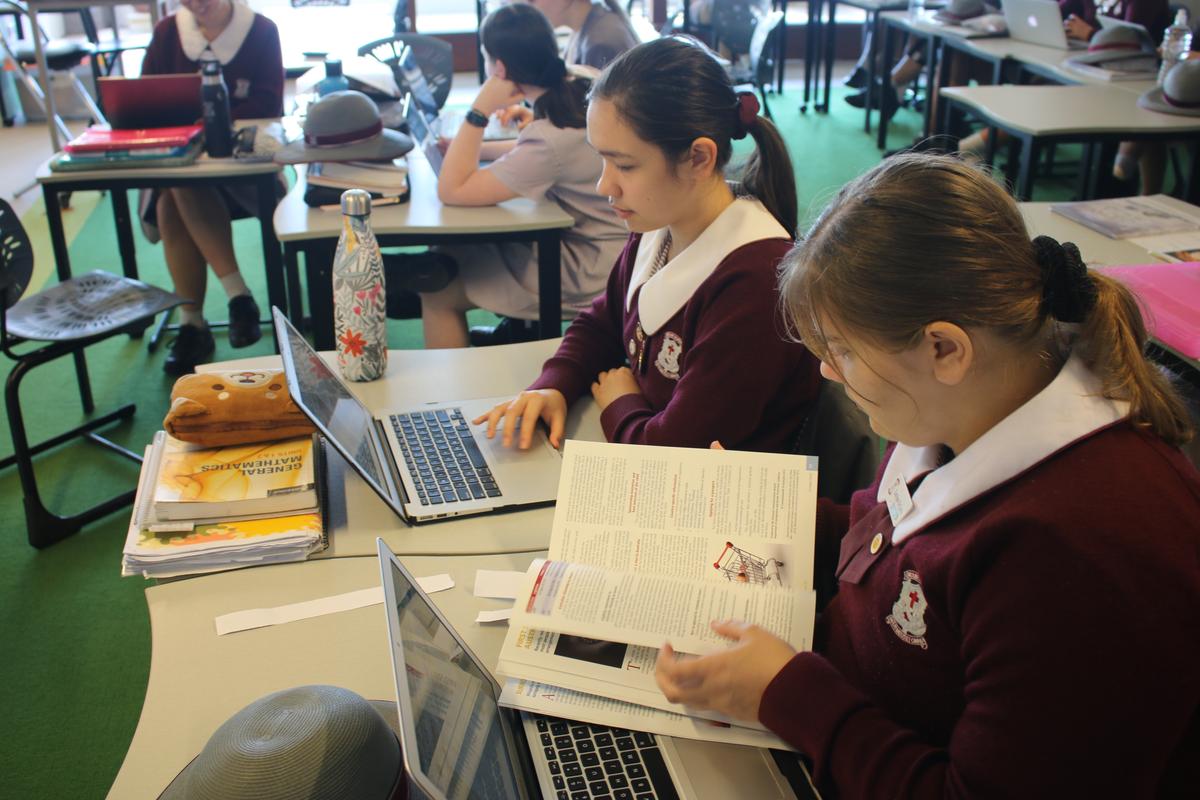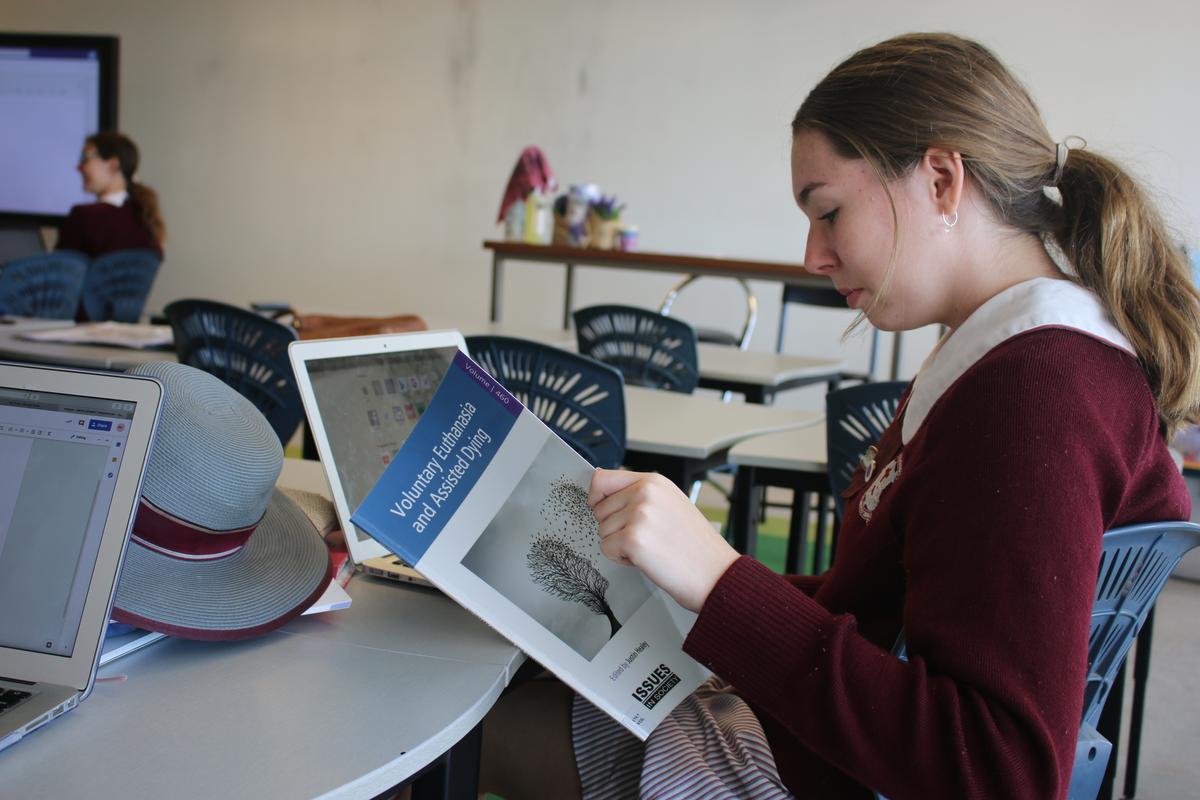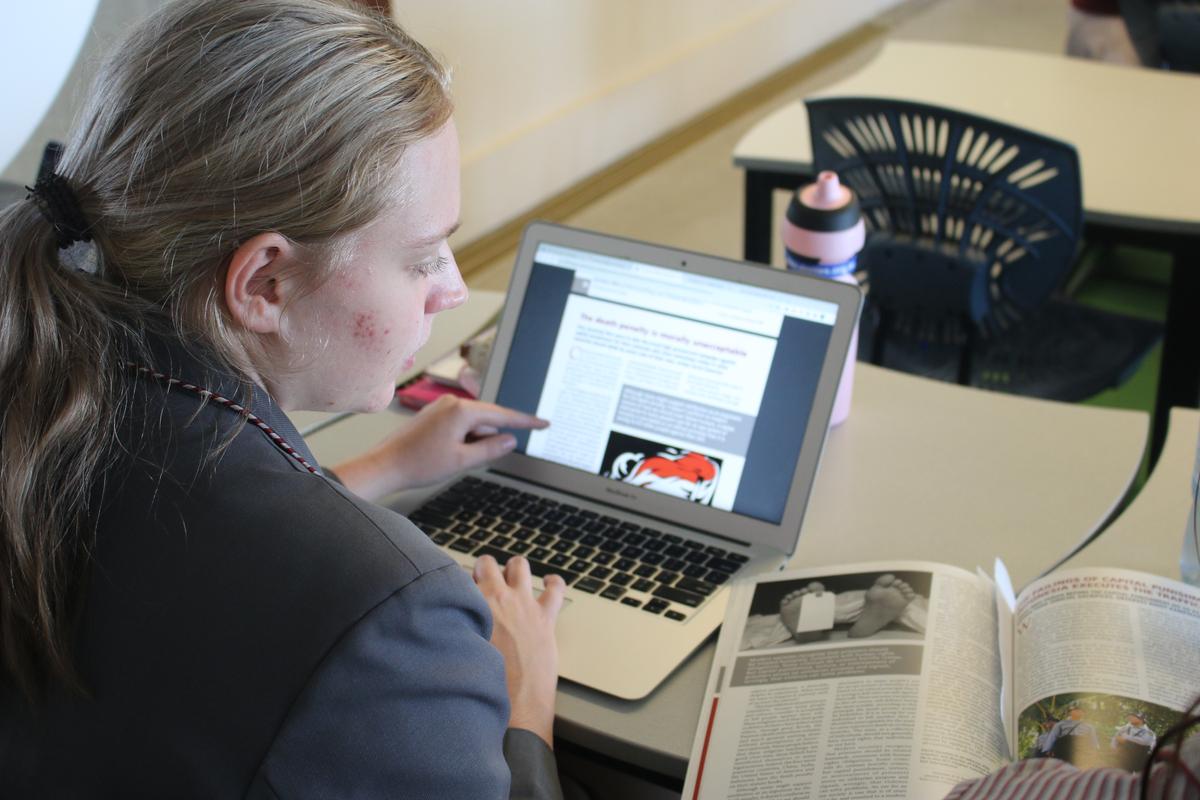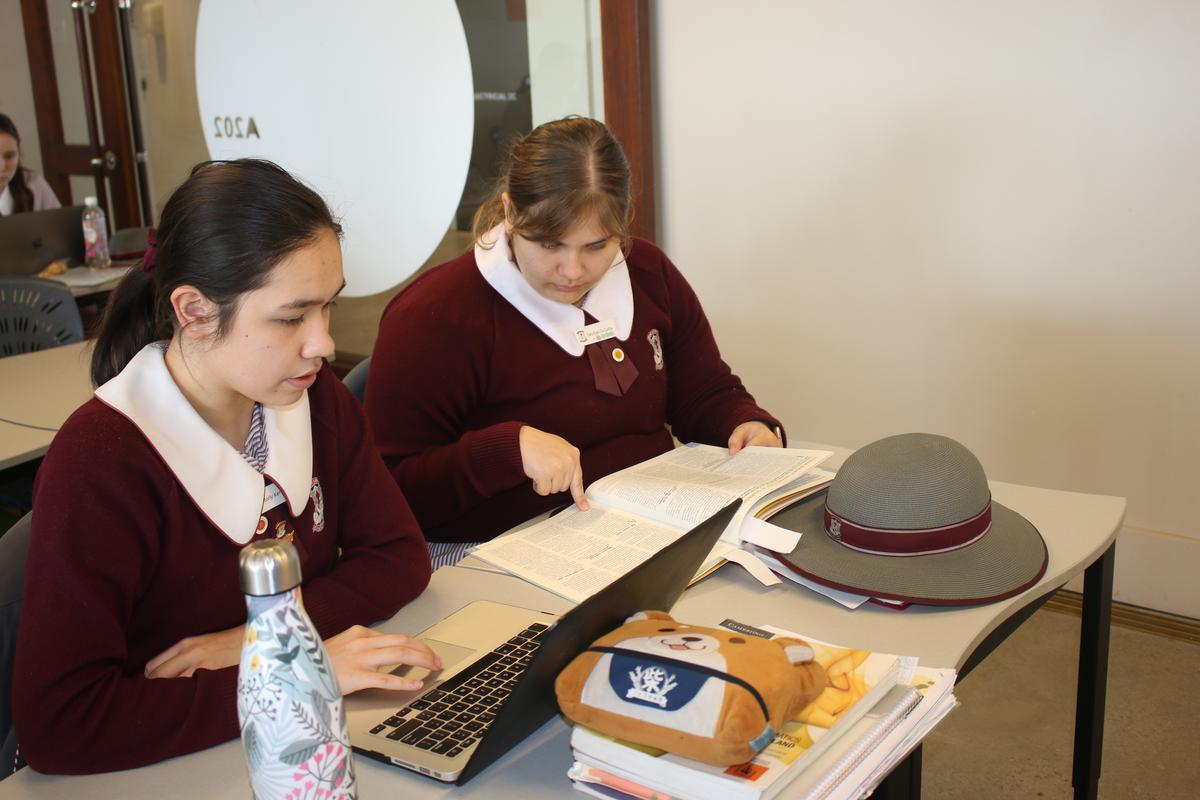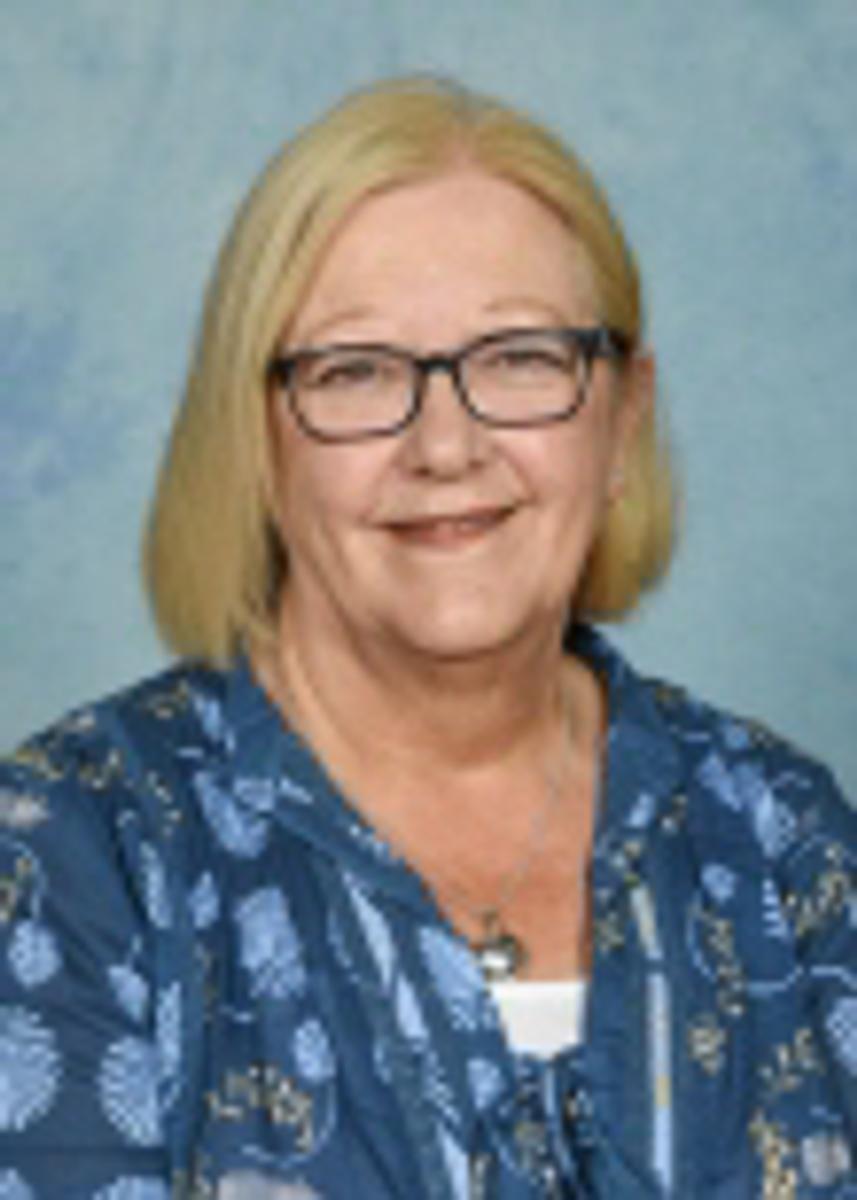Learning Area Advisor - Religious Education
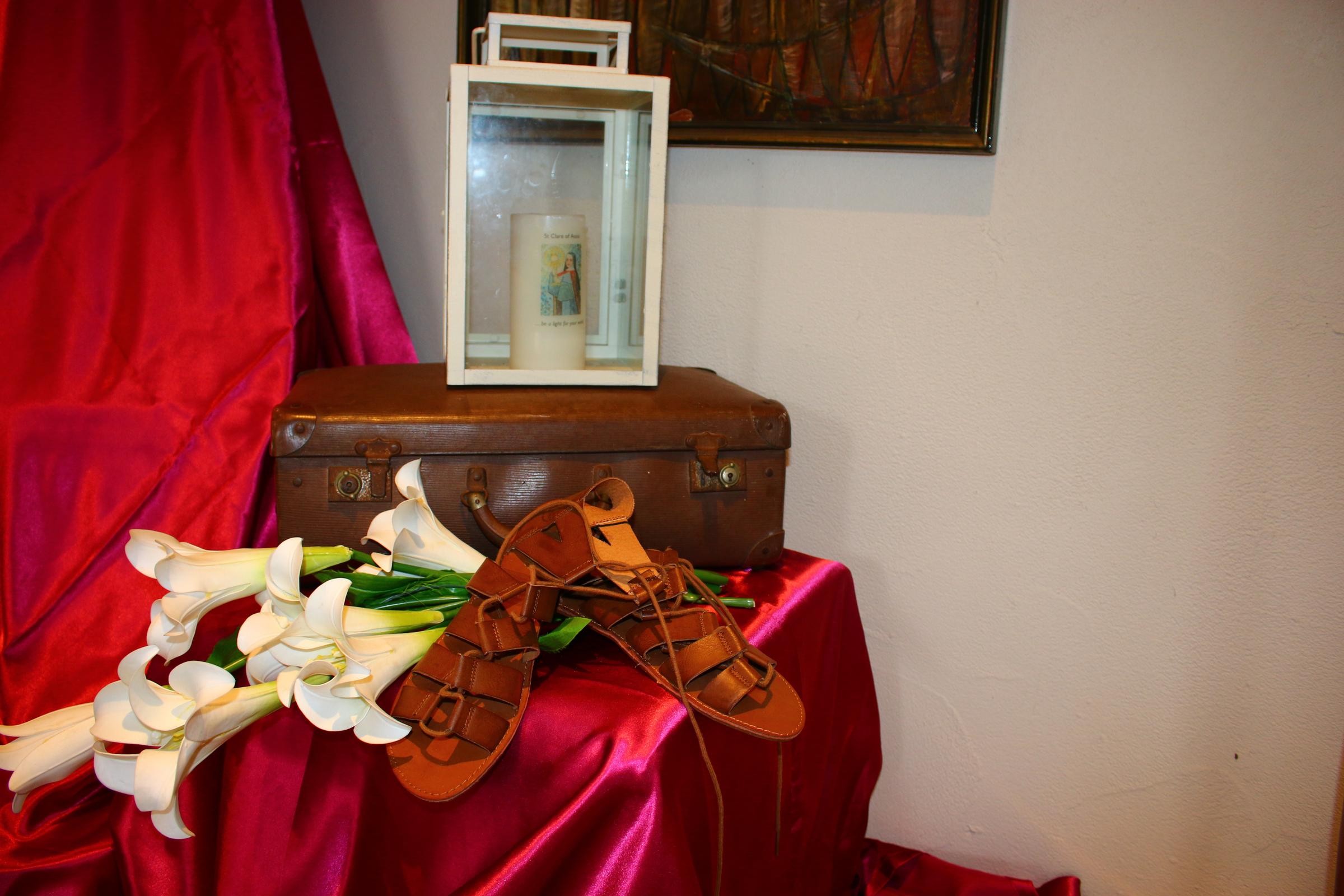
Why Teach Religion at Mount Alvernia College?
The answer to this question might seem obvious.
Mount Alvernia is a Catholic secondary college – of course we must teach Religion! The Archbishop of Brisbane has decreed that all students in Brisbane Catholic schools from Prep to Year 12 must be taught Religion – of course we want to follow the Archbishop’s wishes!
Compelling and correct though these reasons are, they do not give the full and rich picture that our Religious Education Curriculum gives.
Think, for a moment, about this…
Education cannot be neutral. It is either positive or negative; either it enriches or it impoverishes; either it enables a person to grow or it lessens, even corrupts him/her. The mission of schools is to develop a sense of truth, of what is good and beautiful. And this occurs through a rich path made up of many ingredients.
Pope Francis in an Address to Italian Educators May 10, 2014
Pope Francis is so right. Education, and especially Religious Education in our world today, cannot be neutral. It must be a learning area with a formal curriculum for the classroom learning and teaching. It must be a distinct learning area, with an academic discipline that has the same demands and the same rigour as other disciplines, but the Religious Education curriculum at Mount Alvernia strives to achieve much more.
With an authentic program validated and affirmed by the Archdiocese of Brisbane and Brisbane Catholic Education, it has been organised according to the same curriculum structure and framework of other learning areas – drawing heavily on, and closely aligned to, both History and English learning areas. Our curriculum interacts with, and is reinforced by, the Religious Life of the College – aiming to nurture and enrich the religious and spiritual development of all students, wrapped securely in the comfort of our Franciscan traditions. Together both sides of this coin expand students’ spiritual awareness and religious identity, but also foster their capacities and skills of discerning, interpreting, thinking critically, seeking truth, and making meaning. Our goal is that our students become successful in their learning - confident and creative individuals, who become active and informed citizens. We believe that it challenges and inspires them through a curriculum filled with a contemporary worldview from a Catholic Christian lens.
So… What might you see in a Religion classroom at Mount Alvernia?
Our students at Mount Alvernia are in some respect like all others, like some others, and are like no other. They arrive at Mount Alvernia from a variety of ‘worlds’; with unique life experiences and a diverse range of knowledge of religion in general, some from other faith affiliations or none; and in different stages in their religious and educational journeys. This diversity brings opportunity, richness, and blessing to the Religious Education classroom, but it brings challenges that impact this learning area. It requires our teaching and learning to be a particular design and practice that invites meaningful engagement and participation of all students.
In Francis School, you will see our Years 7 and 8 students begin their experiences of living in the tradition of St Francis, St Clare, and Elizabeth Hayes. You will see them engaged in the stories of Francis and Clare, and of the values by which they and their brothers and sisters in faith lived their life; we show our students how these values are relevant for us today. You will see their interaction with, and exploration of, other faith traditions, when we compare and contrast the values and beliefs of monotheistic religions. They work collaboratively to design, create, and participate in a variety of digital and presentation modes to express their understanding of the historical events and teachings of Jesus through the inspiration and environmental reverence of Francis and Clare of Assisi.
In Clare School, you will see our Years 9 and 10 students expand their knowledge and understanding with a wide range of skills. You will see creative art pieces with the message of conversion. You will see written responses that explain, analyse, and justify their understanding of who God is for them, in a historical and contemporary sense. You will see them engage in in-depth studies of the text and formation of sacred scriptures. You will see engagement and growth of young adults, who are able to develop opinions and react to events in our world from an informed and socially just viewpoint.
In Elizabeth Hayes School, you will see our Senior Schooling students in Years 11 and 12 work through a curriculum in either Study of Religion or Religion and Ethics, working independently and building on prior learning and skills to use, consolidate, and expand on what they have learned through their involvement in the Religion program in Years 7 to 10. As in previous years, you will see our students engage with an inquiry approach to develop logical and critical thinking and decision making that contributes to a range of skills to enable them to live and work successfully in the 21st century. You will see our students plan, produce, and present projects and investigations, and sit examinations to show their understanding in areas of social justice, ethics, morality, and contemporary religious culture in the wider world community, into which they are about to enter.
Over the course of six years, seeing students engage, ask, and explore; interpret and make connections; see, judge, and act; discern, apply insights, and respond to Scripture, Catholic Social Teaching, the Discipleship of Jesus, the Church’s Story and Ethics, Moral, Wisdom, and Conscience satisfies the governing educational bodies of our diocese and State but, much more importantly, it blesses our whole community with the growth and maturity that we see in our cherished students.
However, in case you are getting the sense that we are living in the land of milk and honey, I leave you with a lesson from one who knows …
Jesus took his disciples up to the mountain and, gathering them around him, he taught them, saying: “Blessed are the poor in spirit for theirs is the kingdom of heaven. Blessed are the meek. Blessed are they who mourn. Blessed are the merciful. Blessed are they who thirst for justice. Blessed are you when persecuted. Blessed are you when you suffer. Be glad and rejoice for your reward is great in heaven.”
Then Simon Peter said: “Do we have to write this down?”
And Andrew said: “Are we supposed to know this?”
And James said: “Will we have a test on this?”
And Phillip said: “I don’t have any paper!”
And Bartholomew said: “Do we have to turn this in?”
And John said: “The other disciples didn’t have to learn this!”
And Matthew said: “Can I go to the boys’ room?”
And Judas said: “What does this have to do with real life?”
Then one of the Pharisees who was present asked to see Jesus’ lesson plan and inquired of Jesus: “Where are your Learning Intentions and Success Criteria in the cognitive domain?”
And Jesus wept!
Enjoy and keep smiling :)
Denise Shaw
Learning Area Advisor - Religious Education
